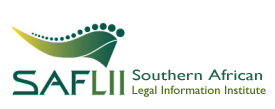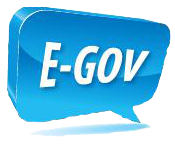Law Via the Internet Conference LVI 2012
 IMPORTANT DATES:
IMPORTANT DATES:
Submission of Abstracts for Papers/Presentations(and panel
discussions): April 2, 2012
(submission: https://www.conftool.pro/
Authors Notification: May 1, 2012
Law Via the Internet Conference LVI 2012
October 7 - 9, 2012
Cornell Law School, Cornell University
Ithaca, New York (USA)
http://www.lvi2012.org/
Follow: @LVI2012
Submission of Abstracts for Papers/Presentations(and panel
discussions): April 2, 2012
(submission: https://www.conftool.pro/
Authors Notification: May 1, 2012
- - - - - - - - - - - - - - - - - - - - - - - - - - - - - - - - - Law Via
the Internet Conference LVI 2012, Celebrating the 20th Anniversary of Open
Access and Free Law.
In 2012, we mark the the 20th Anniversary of the Legal Information Institute
at Cornell Law School, the first legal website on the Internet and the
birthplace of the free law, open access movement. This year also marks the
10th Anniversary of the Declaration on Free Access to Law, a document
crafted and signed by delegates from more than a dozen countries assembled
at the Law Via the Internet (LVI) conference in 2002. To mark this
achievement and to strategize for the next 20 years, the 2012 LVI conference
will be held in the United States for the first time, at the birthplace of
the open access, free law movement, Cornell Law School in Ithaca, NY. Please
join us!
The 2012 Law Via the Internet Conference will be structured somewhat
differently than in the past, and is designed to allow free and open
discussion between attendees regardless of specialty or interest. Each full
day will begin with an Opening Keynote address, followed by one morning
sessions, a catered lunch, and three afternoon sessions.
Sessions will be held concurrently and will feature presentations in five
thematic tracks:
=====
Track 1: The Promise and Reality of e-Participation
Chairs: Cynthia Farina & Dmitry Epstein, Cornell eRulemaking Initiative
The Internet brought a great democratic promise for public engagement in
government affairs. It lowered the barriers to participation and gave people
tools to hold their governments more accountable. Two main ideas have been
guiding the discourse on e-participation. First, there is a belief that
broader participation will necessarily yield better democratic results.
Second, there is a belief that what prevents people from participating
effectively is the lack of appropriate tools. But if you build it, who will
come? What constitutes meaningful online public participation? What
technical solution, psychological traits, and social processes help or
hinder effective public engagement in government affairs using the Internet?
How does mobilization of masses for civic protests differ from helping
people take constructive part in policymaking processes? What can we learn
from the successes and failures of e-participation initiatives? This track
will address these and other questions exploring the gap between the promise
and the reality of e-participation.
=====
Track 2: The Business of (Open) Legal Publishing
Chair: Edward J. Walters, Fastcase
Open access to law is a central mission of many different types of
organizations. However, open access must be paid for, and if not by its
users, then by whom? Over the years, different open-access providers have
discovered different funding models appropriate to different national and
institutional settings. Some operate in universities, some in government,
and some in the private sector. Some are hybrids or partnerships. All have
different sources of revenue, support, and cross subsidy. All operate in
different markets and different business environments.
=====
Track 3: Free Law and Government Policy
Chair: Daniel Schuman, Sunlight Foundation
Government, and government information policy in particular, forms an
important part of the environment for open access to law. It places
technical and legal restrictions on the availability and format of
documents; creates intellectual-property, privacy, financial, and secrecy
regimes that dictate what is available to whom; and instantiates a
bureaucratic process between the public and government information. It does
much to determine the economic value of legal information and facilitate
rent-seeking. It may also be a key player or competitor in the open-access
arena. This track is concerned with the effects of various aspects of
government policy and government behavior on open access to law.
=====
Track 4: Application Development for Open Access and Engagement
Chair: Marc-André Morissette, Lexum
Open access to law activities run the gamut from providing basic access to
primary documents to supporting public participation around legal reform to
improving intellectual access to the law. Application developers are in the
guts of open access, transforming raw data into features and applications
that can be of use to the general public, non-lawyer professionals, and
legal experts. This track is concerned with the achievements, challenges,
and opportunities around open-access-application development.
=====
Track 5: Data Organization and Legal Informatics
Chairs: Núria Casellas, Autonomous University of Barcelona & John
Joergensen, Rutgers University School of Law-Camden
Tools and techniques for legal information search, retrieval, visualization,
representation, organization, and management are vital to improving access
and understanding of legal information and legal knowledge. The general
public, business, government officials or legal professionals can benefit
from research and implementation on enhanced legal search and retrieval
capabilities, document drafting and case management tools, legal document
production, management and publishing systems, or workflow management and
compliance monitoring solutions, to name a few.
Proposing solutions to deal with information overload and poorly-structured
dirty data, to represent legal documents or concepts and organize legal
structure, to offer solutions for multilingual or multi-jurisdictional
search and retrieval of legal documents, in short, to better organize legal
knowledge and deal with legal complexity, are some of the challenging tasks
that this track will explore.
=====











